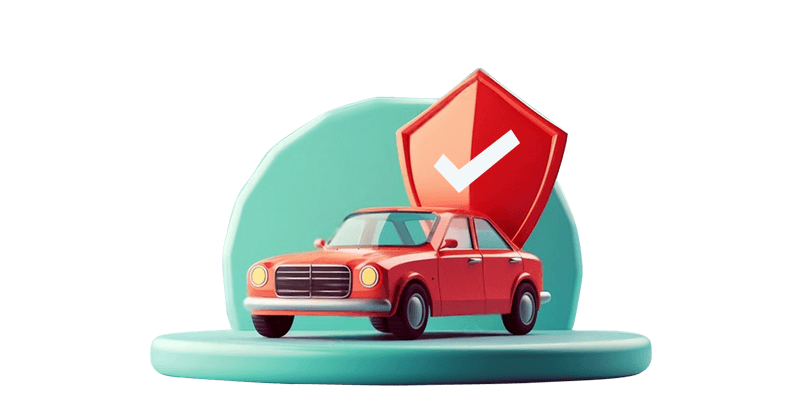
Every day, hundreds of thousands of business owners across the country, big or small, rely on commercial vehicles to carry out their business activities. It could be the transportation of goods & services to their customer via a delivery van, a logistics truck, or a cargo haulier; however, what’s essential here is on-time delivery and cargo protection.
While timely delivery is ensured by the business owner's proper team management, what about cargo safety? A lot of effort indeed goes into ensuring the cargo reaches the customer well-preserved, but what if something goes wrong? Is there a safety shield that covers this loss of freight?
In this article, we’ll be discussing how commercial vehicle insurance comes in handy in such a situation. From the basic workings, the extent of cargo protection, to the claim process, here you’ll find everything you need to know related to cargo protection against loss or theft.
So, without further ado, let’s get started …
Commercial vehicle insurance in the Philippines
What is commercial vehicle insurance? In the Philippines, insurance providers' policies are specifically designed to protect vehicles used for business purposes.
Is commercial vehicle insurance different from personal vehicle insurance? Yes, the two are distinct. Here’s a simple comparison -
|
Parameter |
Commercial vehicle insurance |
Personal vehicle insurance |
|
Purpose |
Covers vehicles used for business or commercial purposes—for example, delivery vans, trucks, etc. |
Covers vehicles used for personal or private use - for example, a family car. |
|
Coverage scope |
It offers coverage for damage to the vehicle, cargo, or goods in transit, as well as passenger liability. |
Offers coverage against third-party bodily injuries/death, theft, fire, flood, etc. |
|
Premium |
High, as commercial vehicles face a greater risk. |
Fewer, personal vehicles have less exposure to risk. |
|
Driver coverage |
Covers multiple authorised drivers working for the business. |
Limited to registered owner and authorised drivers (usually family members). |
|
Claim process |
It's complex and may require business documents, proof of commercial use, and/or a delivery receipt. |
Straightforward and requires ownership proof and personal identification. |
|
Legal requirement |
Mandatory for business operations. |
Optional beyond the minimum this-party liability. |
Overall, compared to personal vehicle insurance, commercial vehicle insurance offers broader protection and is tailored for business operations, protecting the driver, vehicle, and cargo.
Also Read: Truck/Commercial Vehicle Insurance 101: What Filipino business owners need to know
Importance of commercial vehicle insurance
For a business owner, a single accident or cargo theft can be devastating, resulting in significant financial losses. However, with proper insurance, the setback doesn’t hurt as the business operations return to normal soon.
Overall, commercial vehicle insurance offers not just protection but also the peace of mind essential to conducting business operations and making important decisions.
 Photo from Freepik
Photo from FreepikScope of commercial vehicle insurance
Many business owners wonder about the coverage insurance providers offer for their commercial vehicles. So, a standard policy usually covers the following: third-party liability, injuries/death of the driver & passengers, and damage due to accident or theft. However, all this depends on the plan the policyholder chooses.
Furthermore, insurers also offer optional coverage that enhances the protection. This includes Acts of Nature coverage and cargo protection.
Note that while CTPL insurance is mandatory, comprehensive and add-on insurance are optional, which increases the premium, but offers coverage that covers the cost of repair/replacement and medical bills that you’d have to bear otherwise.
Also Read: Why every truck business needs Comprehensive Truck Insurance in the Philippines
What about cargo loss & theft?
It is a fact that your goods in transit are exposed to many risks during transit. For instance, they can get lost or damaged during transportation, resulting in financial consequences for the business.
Cargo protection is not necessarily part of the standard commercial insurance, and in the Philippines, it is usually offered under ‘Marine Cargo’ insurance. Purchased as an add-on, it specialises in protecting goods carried by commercial vehicles against loss or damage.
Marine cargo insurance coverage scope
While the Institute Cargo Clauses are global standards used in marine insurance to define the scope of coverage for goods in transit, in the Philippines, they are applied through local insurance policies.
Here’s what is covered under the policy -
- Total or partial loss of cargo
- Theft during transit
- Accident, collision, or overturning
- Acts of God, like floods, typhoons, earthquakes
Common exclusions -
- Defective or improper packaging
- Wear & tear
- Unlicensed driver
- Driving under the influence
Common factors affecting the premium rates -
- Cargo type (value, perishability, flammability, etc.)
- Type of coverage
- Value of coverage
- Route
- Claim history
- Insurers pricing
Benefits of cargo insurance -
- Business continuity: It protects the business from financial losses due to cargo damage, ensuring smooth operations even after an accident.
- Enhanced credibility: Having coverage boosts business credibility with clients.
- Risk mitigation: Business can safely deliver goods and services.
Commercial and cargo insurance claim process
 Photo from Freepik
Photo from FreepikBe it personal, commercial, or cargo car insurance, the claim process remains the same. Usually, the following common steps are involved -
Step 1: Notify the insurance provider asap after the accident
Step 2: Contact the local authorities and click images of the loss or damage
Step 3: Gather the required documents (driver’s license, vehicle or/cr, police report, invoice/receipt) and submit them along with the duly accomplished claim form
Step 4: Wait for the adjuster and inspection
Step 5: Receive settlement
Also Read: Don't panic after an accident — Here's how to file a comprehensive claim
Common reasons for claim denial
- Make sure all documents are organised
- Report the incident promptly to the insurance provider
- Take photos & videos of the damage as proof
Top cargo insurance providers in the Philippines
- AXA Philippines
- Malayan Insurance
- MAPFRE Insurance
- FPG Insurance
Bottom line
Ours is a country frequently hit by natural disasters such as floods, earthquakes, and typhoons. In addition, there are other issues, such as high rates of accidents and theft. All this badly impacts trade and harms the commercial vehicles used in the process. Here comes commercial vehicle insurance, providing broader protection tailored for business operations.
While commercial vehicle insurance focuses on protecting vehicles, drivers, and passengers, cargo insurance covers cargo. The latter ensures your business remains financially secure against unexpected losses.
FAQs
Q1.Where can I check the legitimacy of an insurance provider?
Ans. Visit the official Insurance Commission website and see if the insurer is listed as a certified provider.
Q2. Is it mandatory to insure cargo in the Philippines?
Ans. No, business owners don't need to insure cargo, but it is highly recommended.
Q3. Can perishable goods be insured?
Ans. Yes, but such goods require special coverage.
Q4. Is damage due to a strike covered under commercial insurance?
Ans. Not by default, this one needs a notable add-on inclusion in the policy.
Q5. What to do if the goods arrive damaged?
Ans. It is recommended that you contact your insurance provider or agent as soon as possible.
Q6. Can small businesses avail cargo insurance?
Ans. Absolutely, any business, big or small, can opt for cargo insurance.
Q7. Does commercial insurance automatically cover cargo theft?
Ans. No, a policyholder needs to opt for an optional add-on called cargo insurance.
Q8. What type of cargo is not covered?
Ans. Explosive and illegal goods are typically excluded.
Q9. How soon should I report cargo loss?
Ans. You are requested to report the loss as soon as possible, preferably within 24 hours.
Q10. How are premiums calculated for cargo coverage?
Ans. The following factors are considered: cargo type, value, distance, and vehicle usage.
Also Read: Top 7 risks covered by truck and commercial vehicle insurance











